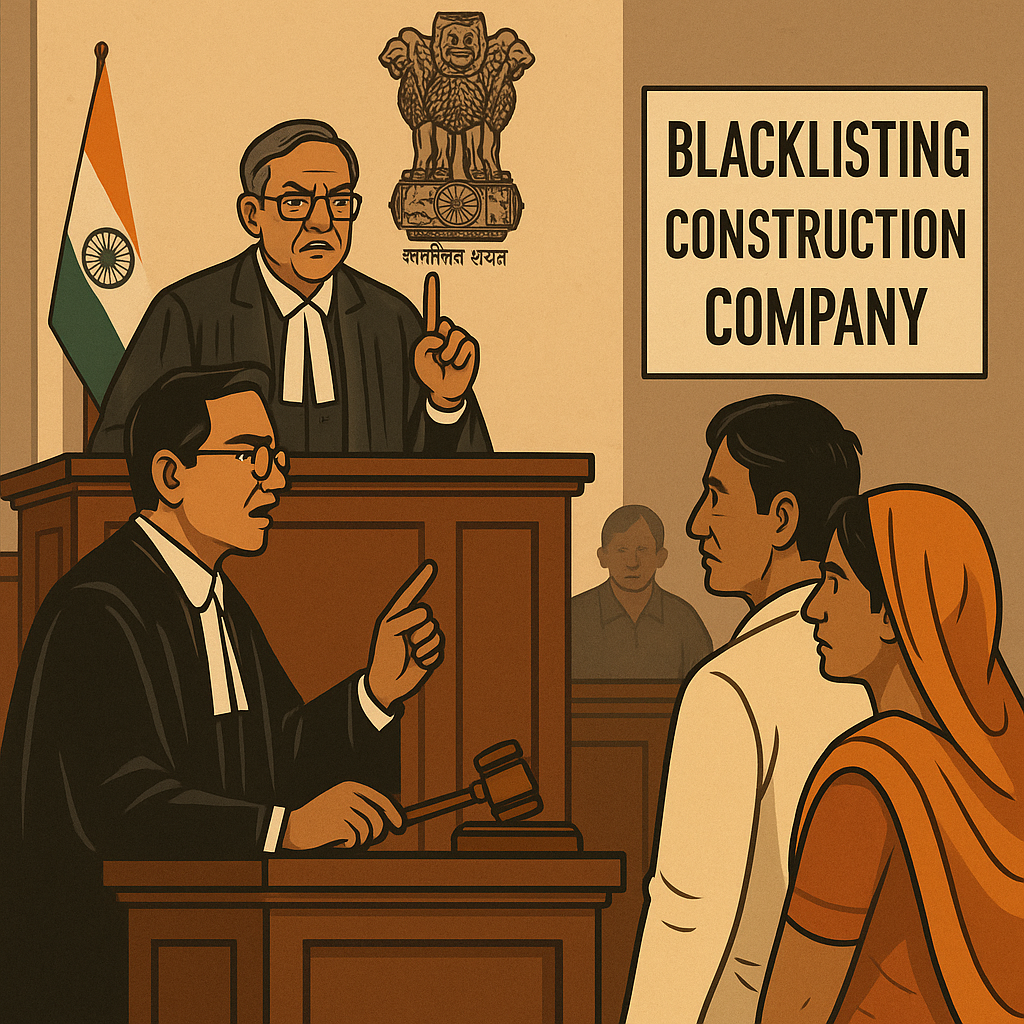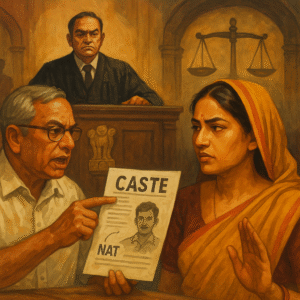In a significant ruling on administrative fairness, the Patna High Court has set aside a 10-year blacklisting order issued by the Bihar Road Construction Department against a contracting firm. The Court held that such extreme action cannot be taken based on a vague notice and without giving the contractor a proper opportunity to respond.
Simplified Explanation of the Judgment
The petitioner, a construction company, challenged the Bihar government’s decision to blacklist it for 10 years from government contracts. The core grievance was that the show-cause notice issued to the firm lacked specific details about the alleged faults or irregularities in project execution. The company had requested clarification, but the authorities proceeded to blacklist it without addressing those queries.
This blacklisting had severe implications—it effectively barred the company from participating in any future government tenders, which is often considered a form of “civil death” for a business entity in the public sector.
The case was heard by a Division Bench of the Patna High Court comprising the Hon’ble Acting Chief Justice and Hon’ble Mr. Justice Partha Sarthy. The petitioner’s counsel argued three key points:
- The notice issued was vague and failed to specify the alleged anomalies.
- The company was not given an adequate chance to reply or defend itself.
- A 10-year ban is excessive and disproportionate under the law.
The State government, represented by its counsel, maintained that the blacklisting was justified.
After hearing both sides, the Court ruled in favor of the petitioner. It observed that a vague notice without clear charges makes it impossible for the recipient to respond meaningfully. Moreover, when the petitioner sought clarification, the authorities ignored the request and moved ahead with the blacklisting.
Importantly, the Court emphasized that a 10-year blacklist is “too harsh” and contrary to the principle of proportionality. Courts, including the Supreme Court, have held time and again that punitive measures must be reasonable and proportional to the misconduct.
The High Court concluded that the blacklisting order could not stand in law. However, it allowed the government to re-initiate the process—this time with a proper notice detailing the anomalies and giving the petitioner a fair chance to respond.
The government has been directed to complete this process within six weeks from the date of the judgment.
Significance or Implication of the Judgment
This judgment reinforces the importance of due process in administrative actions. For contractors, vendors, and other private entities dealing with government departments, it sends a clear message: authorities cannot blacklist or penalize without specific allegations and fair opportunity to respond.
For the government, the decision serves as a reminder to follow principles of natural justice, especially in matters that could severely impact a party’s livelihood. The judgment ensures checks on arbitrary executive actions and protects business interests from disproportionate penalties.
Legal Issue(s) Decided and the Court’s Decision
- Whether a contractor can be blacklisted without a specific and clear show-cause notice?
✔ No. The notice must detail the anomalies and allow proper response. - Is a 10-year blacklist legally sustainable in such a context?
✔ No. It is excessive and disproportionate. - Can the blacklisting be quashed and the matter remanded for fresh consideration?
✔ Yes. The Court set aside the order and directed the government to issue a proper notice and decide afresh.
Case Title
M/s Raja Constructions v. The State of Bihar & Ors.
Case Number
CWJC No. 9879 of 2025, with CWJC Nos. 10033 and 10034 of 2025
Coram and Names of Judges
Hon’ble the Acting Chief Justice Ashutosh Kumar
Hon’ble Mr. Justice Partha Sarthy
Names of Advocates and who they appeared for
- For the Petitioner: Mr. Jitendra Singh (Sr. Advocate), Mr. Anil Kumar Singh
- For the Respondents: Mr. Nadeem Seraj, Mr. Madanjeet Kumar
Link to Judgment
If you found this explanation helpful and wish to stay informed about how legal developments may affect your rights in Bihar, you may consider following Samvida Law Associates for more updates.







